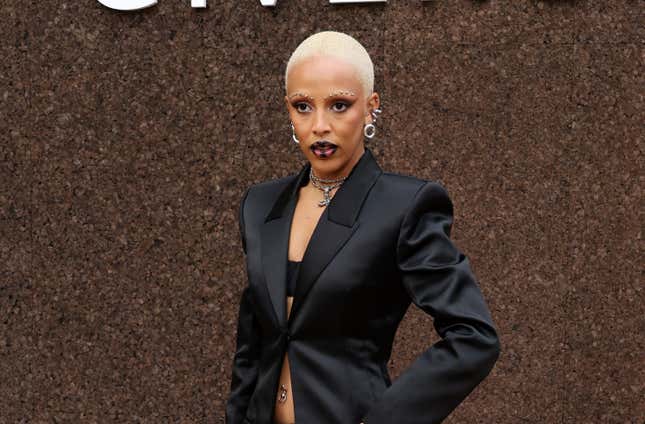
I’ve never understood why some Black people are obsessed with policing others’ Blackness. It’s an uncomfortable part of our community. The latest star defending themselves from questions about their life is singer/rapper Doja Cat. In an interview with Dazed, the “Say So” artist responded to criticism that she isn’t Black enough.
“I read something the other day where someone said I was never surrounded by Black people, and I have no Black influence in my life,” she said. “Which is so unbelievably crazy to me. Growing up on the land, it was all Black energy. My family was Black. My mum was the only real white influence in my life.”
It’s 2022, why are we still doing this to one another? It seems like a simple concept to grasp, but your Black experience isn’t the only Black experience in the entire world. Therefore, you do not get to judge other Black people based on how you’ve lived your life. Just to be clear, even if you know Doja Cat personally, you still don’t get to judge her Blackness, because you haven’t lived her life and dealt with her experiences.
“It’s easy to make assumptions about people you don’t know,” the “Kiss Me More” artist said. “I don’t think people are trying to destroy my light or make me unhappy; I think it’s just that they don’t know.”
I’m not claiming the “You Right” singer is unproblematic, she’s made very public mistakes. However, in this instance, I feel like it’s important to remember that Doja Cat is not just an award-winning artist, she’s also a real person. And just because you listen to her music, or follow her on social media, that doesn’t give you the right to judge her Blackness.
We talk all the time about how Black people are not a monolith, and yet anytime someone expresses an interest or characteristic that isn’t accepted as part of the “normal” Black experience, their Blackness is suddenly in question. If we’re not a monolith, we need to start treating one another as individuals with their own ideas and personalities.

